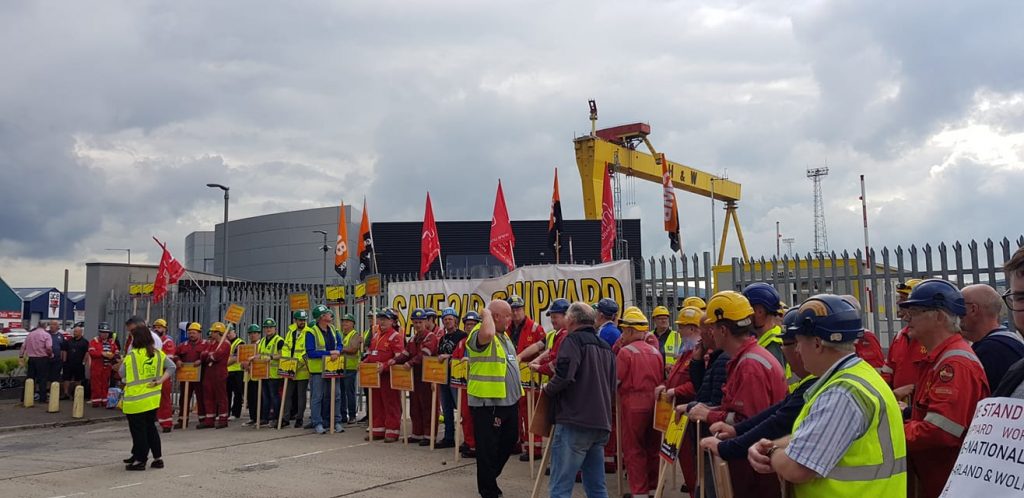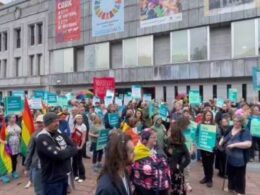Workers at Harland & Wolff have shown real determination by occupying the shipyard and demanding it is brought into public ownership. The loss of more jobs and skills would be a serious blow to the local economy. Through their struggle, they have prevented the shipyard going straight to the wall.
Potential to save jobs
The recent announcement that there are prospective bidders for the yard who would not simply engage in asset stripping is a victory. This is the result of the breathing space created by the occupation. As Unite Official and Socialist Party member Susan Fitzgerald stated clearly:
“Serious bidders will base their offers on a genuine interest in taking the shipyard forward as a going concern with all the workers’ jobs and skills intact but they need to be aware that if the bids do not reflect a genuine interest, this workforce is going nowhere.”
Above all, this is an illustration that struggle gets results. The logic of capitalism would have dictated that, if the company went under, the workers must go, and the yard must close if no buyer could be found. Instead, the shipyard workers may win a fresh lease of life for the yard.
Nationalisation – the only lasting solution
While a new buyer may act as a short term solution and any outcome that saves jobs and sees investment in the yard will be a major win, employers are fundamentally beholden to their bottom line, rarely looking beyond the next financial quarter. To ensure stability and growth in jobs and work, what is needed is long-term planning, not for profit but for the interests of working-class people as a whole. We are in the middle of a climate emergency. Harland & Wolff has the potential to be a major centre of production of renewable energy equipment. The skills of workers in the yard are of vital importance for the present, but also future generations. To achieve this security and stability, we agree with the union demand that the yard should be brought under public ownership and to be run democratically. This would allow for the development of the workforce by taking on new apprentices and training a future generation in these vital skills.
Workers need their own party
The resolve and militant class action of the Harland & Wolff workers has been in sharp contrast to the inaction of the Orange & Green politicians who, while offering kind words about the history and importance of the shipyard, have done nothing to save it. They have, in reality, accepted the line of the UK government that this is a “commercial matter”.
What has been exposed through the course of this struggle is that we as workers are impaired on the political front. None of the main parties stand in our interests. When it came to saving jobs in Michelin, Gallaher’s and the shipyard, they have offered no way forward. During their tenure in Stormont, they presided over an administration of cuts to public services, wage restraint and job losses. They prioritised cutting corporation taxes for large corporations over funding public services.
The announcement by Unite that they would support shipyard workers running as candidates is a hugely significant development. Historically, the labour and trade union movement has been the key force able to unite ordinary people here to fight for their common interests and challenge sectarianism. It remains the only force capable of doing so today. If workers’ representatives stand on a bold programme of resolutely opposing cuts and the race to the bottom, demanding women’s and LGBTQ+ rights and, crucially, offering an anti-sectarian alternative based on solidarity, compromise and mutual respect, it would point the way forward to building a new mass party to act as a real voice for the working class.












